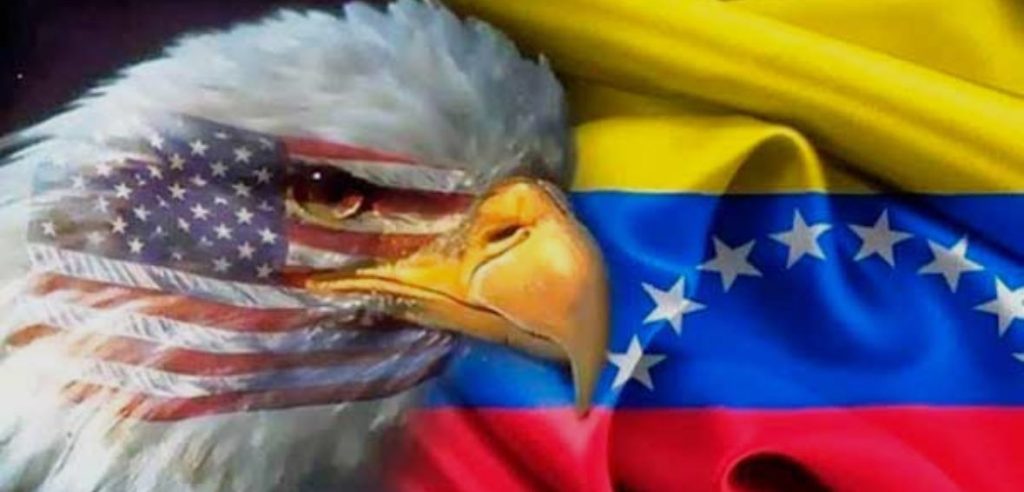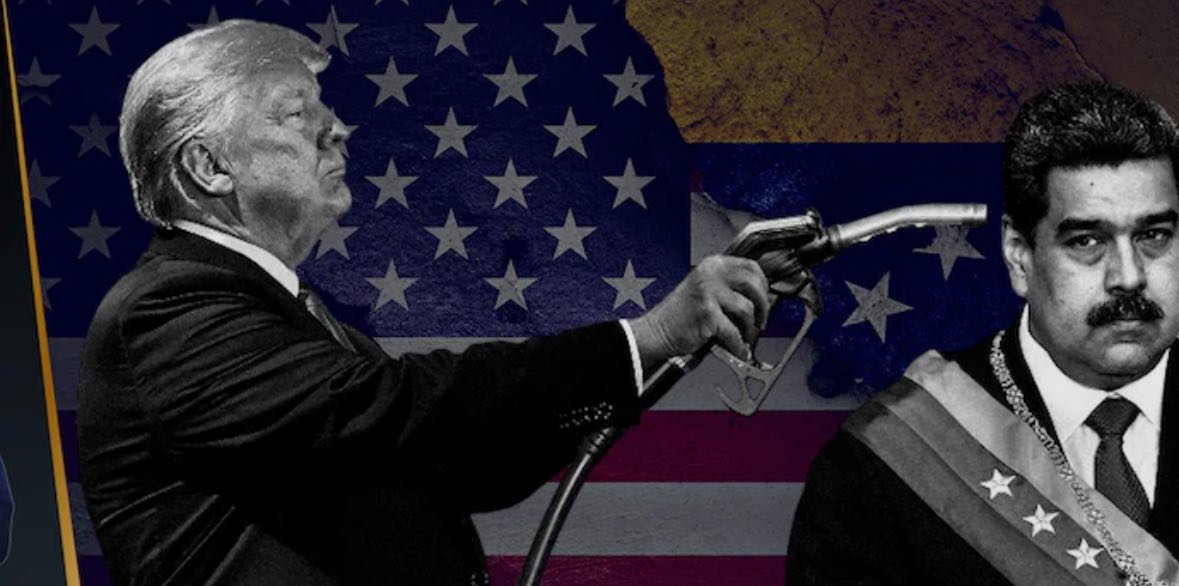War with Venezuela: Justification or Reality
War with Venezuela: Justification or Reality
According to Iran Gate News Agency, the Trump administration’s decision to redefine a Venezuelan gang as enemy combatants and legitimize military operations against them has created a controversial turning point in U.S. security policy—a shift that neither relies on credible data nor is founded on solid legal logic, and now poses the risk of turning a criminal challenge into a military and constitutional crisis.
Assessment of Trump Administration’s Legal and Strategic Framework in Dealing with Venezuelan Gangs
By redefining Venezuelan gangs as combatants in an armed conflict, the Trump administration is testing the legal and policy boundaries of the United States, an action that raises the possibility that the stated objective may not justify the methods being used.
Following a series of attacks on civilian ships in international waters, the Pentagon has informed Congress that it considers suspected members of these gangs as unlawful combatants and believes the United States is entering a non-international armed conflict with them, without a clear explanation of the scope of the entities involved.
The President has also authorized the CIA to conduct deadly covert operations in Venezuela and has deployed U.S. military forces along the country’s coast.
While confronting violent criminal organizations is defensible, the government’s argument is internally contradictory, ambiguous in its targeting, and lacks transparency in defining the final outcome.
The government has embarked on this military path on shaky foundations, attempting to revive the previous narrative of the war on drugs but mixing it with approaches derived from the war on terror.
The aggregation of extraordinary powers to confront a vague threat without fundamental limitations is a potentially dangerous approach that likely will not yield desirable results.

1. Disproportionate Threat
The government’s claim that Venezuela is the main drug threat to the United States does not align with the government’s own official data. According to the U.S. Drug Enforcement Administration’s database, only about 210 tons of cocaine passed through Venezuela in 2018, a figure that constitutes less than 10% of the shipments entering the U.S., while over 1,400 tons of cocaine were transited through Guatemala in the same year.
The reality is that 90% of the cocaine entering the United States is produced in Colombia and 90% enters through the land border with Mexico. Venezuelan routes are mainly directed towards European and Caribbean markets.
Despite this data, the government’s focus on the Venezuelan gang Tren de Aragua (TdA) as part of a larger anti-drug trafficking campaign appears odd, as TdA plays a marginal role in the structure of drug-related crimes.
The Treasury Department has described this gang as primarily active in human trafficking and extortion, emphasizing that drugs are only a secondary source of income for them. Federal indictments also speak of small-scale retail and trafficking activities.
A three-year investigation by InSight Crime also provides scant evidence of TdA’s ability to transport major drug shipments for transnational networks.
Given these circumstances, the government has created a strategic path by focusing on a secondary player in a less significant route, presenting an appearance of decisive action but avoiding confrontation with the main factors.
2. Deviation from Legal Frameworks
In recent years, some Latin American gangs previously recognized as profit-driven criminal actors have been reclassified. President Trump, in the early days of his tenure, issued two executive orders that effectively represented these groups as terrorist threats.
Designating a criminal group as a terrorist organization fundamentally changes the nature and manner of dealing with it.
Criminal organizations operate within civil laws and aim for profit, whereas foreign terrorist organizations pursue political or ideological goals and can be countered with military tools.
Although their tactics sometimes overlap, their nature is generally distinguishable. However, the current government approach ignores the distinction between these boundaries and claims that groups engaging in limited smuggling exhibit terrorist characteristics.
The government’s bolder legal action in March referenced the Alien Enemies Act of 1798, a wartime law allowing for the swift expulsion of individuals identified as enemies without customary procedures.
The government accused TdA of aggression against the United States and subjected its members to detention and expulsion without legal protections, while intelligence reports clearly refuted this claim.
Although the government later moderated its tone, the terrorist label remained central to efforts to shift the group from civil crimes to the framework of armed conflict.
Additionally, attacks on boats suspected of drug trafficking have been justified by referencing the 2001 Authorization for Use of Military Force (AUMF).
The new government logic is that since drugs can cause death, anyone involved in the trade can be targeted by military actions. This rationale is not only ambiguous but fundamentally illogical, effectively elevating every petty smuggler to the level of a wartime enemy.
3. Consequences of a Mistaken Strategy
In Trump’s first term, the government used classic tools to counter Tehran, such as diplomatic pressure, recognizing Juan Guaidó as interim president, and sanctioning the regime’s oil sector and officials.
The main issue is not that the government is unaware of these tools, but that their failure to achieve its goals has been used as justification for employing new extraordinary measures.
Although the government may see dissatisfaction with the effectiveness of previous methods as a basis for this approach, the current actions create new risks.
Instead of retreating, Maduro is preparing for a possible confrontation, and any conflict resulting in American casualties could force the government to expand operations and turn it into a full-scale conflict.
This orientation is also concerning for Trump’s allies as it contradicts his isolationist foreign policy slogan and occurs at a time when his domestic popularity is declining and midterm elections are approaching.
Internationally, the policy of attacking boats without congressional approval or regional support has unpredictable consequences. The government’s desired scenario—weakening or ousting Maduro—would be highly vulnerable if U.S. attacks result in civilian casualties.
Such an event would provide Maduro with a powerful propaganda tool and reduce public support for foreign intervention.
On the other hand, such an approach could weaken the United States’ capacity to pursue larger foreign policy goals, as the Iraq war experience showed that relying on weak arguments—even with the presence of other valid arguments—can erode public trust.
This risk is also present regarding Venezuela. The existence of legitimate reasons to confront Maduro, such as human rights violations and failure to relinquish power after the 2024 elections, is undeniable, but instead of relying on them, the government presents an exaggerated narrative of a prison gang threat.
When this narrative is subjected to verification, not only is the legitimacy of the action undermined, but the possibility of supporting more decisive actions is also eliminated.
4. Deepening Legal and Operational Crisis
The government’s aggressive approach is more driven by political considerations than by legal validity or practical efficacy. Traditional law enforcement tools could have provided a more legitimate path to combat crime without undermining legal principles, but the government has set them aside in favor of militarized frameworks.
Meanwhile, the Department of Justice continues to pursue legal action against TdA members in civilian courts, but the government at a broader level intends to use the military justice framework and broad definitions of the laws of war to designate small boats as enemy vessels.
The fundamental difference between civil and military standards—including rules of engagement, proofs, and constitutional protections—makes using war tools not only legally controversial but also limits the government’s ability to legally detain detainees.
As a result, the government is more incentivized to kill rather than detain, a subject evident in the release of the first attack survivors to their countries of origin.
Additionally, this path pushes the country towards a constitutional crisis, a clear example being when the National Intelligence Council announced that TdA does not operate under Maduro’s government and lacks the capacity to conduct coordinated paramilitary operations, an assessment that seriously questions the legal basis for the emergency expulsions of March 2025.
Such a contradiction raises the question of how the judiciary can address unsupported claims if security institutions also oppose the government’s narrative.
Final Outlook
The Trump administration’s approach appears more aligned with messaging objectives and demonstrating political power than based on sound legal assessments or operational analysis. Abandoning tested law enforcement tools and leaning towards wartime frameworks to address crimes that inherently have a criminal nature is not only legally dangerous but can also have a counterproductive effect in practice.
Relying on arguments that can be easily challenged will cause the government to lose the necessary credibility for future actions, including dealing with real national security crises. In the most pessimistic analysis, this trend indicates the President’s desire to expand his executive powers with wide-ranging domestic and international consequences, and in the most optimistic view, it reflects a lack of coherence in the accurate assessment of threats and understanding of legal mechanisms within the government’s decision-making structure.

